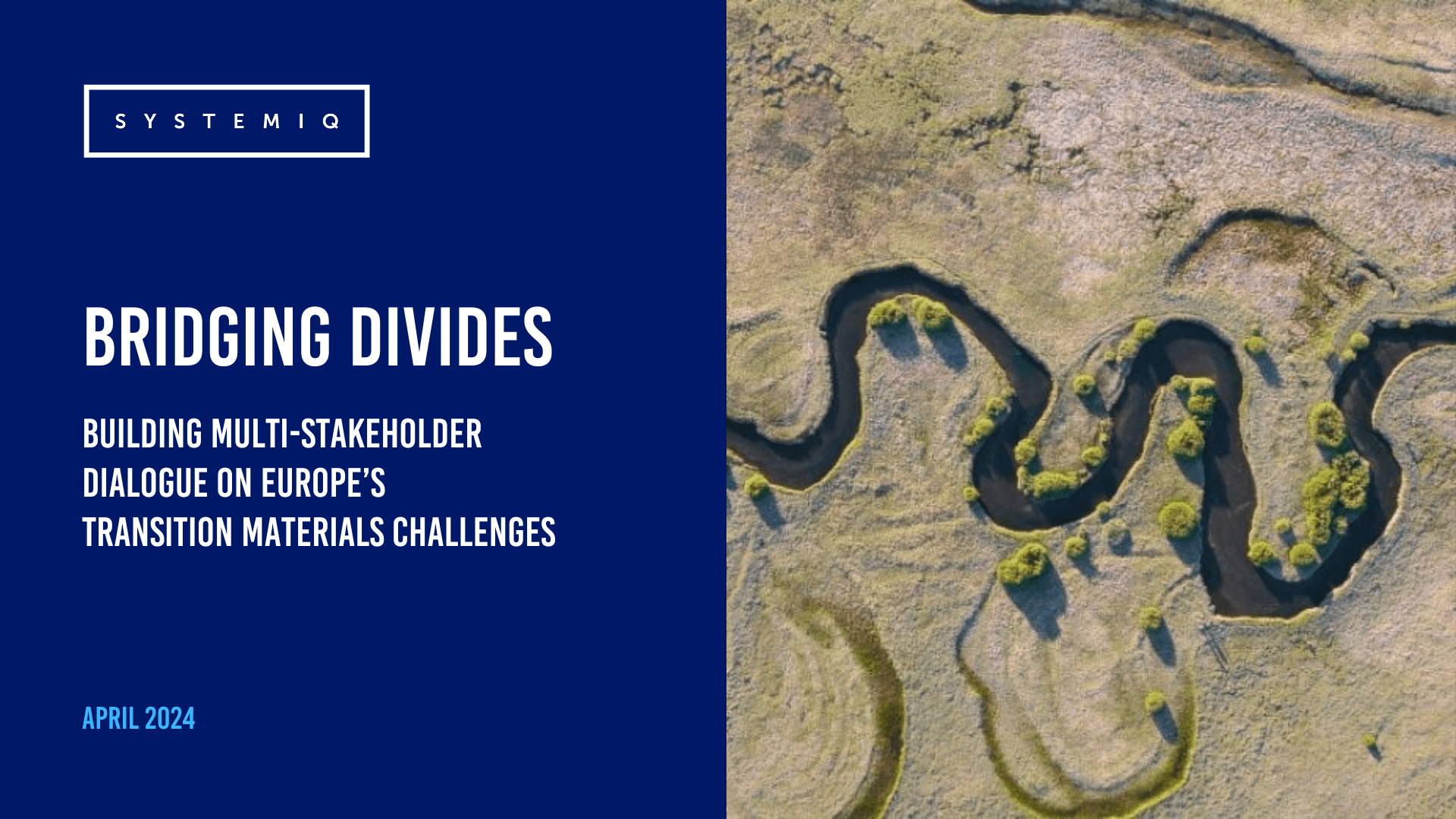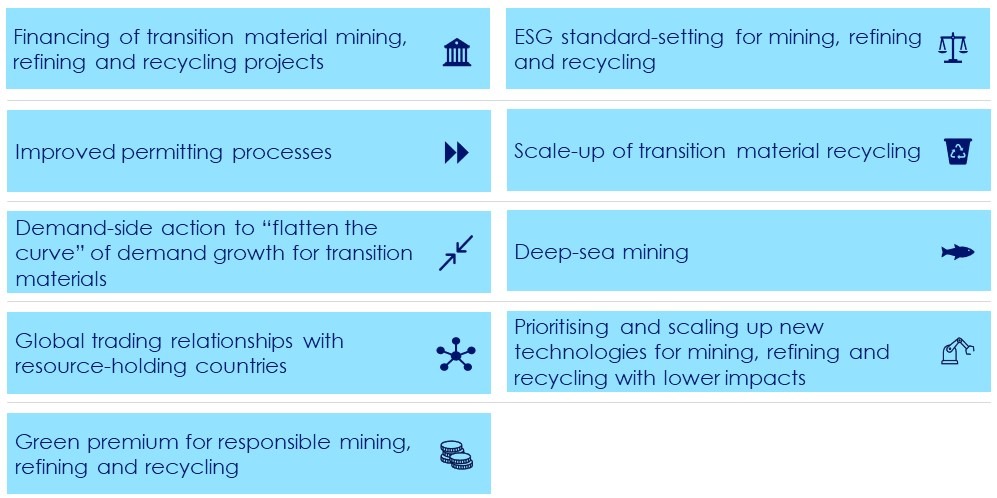Europe faces a growing demand for materials essential for sustainable energy and mobility systems. Lithium, cobalt, copper, nickel and other ‘transition materials’ are crucial for renewable energy technologies and electric vehicles.
An apparent lack of trust and constructive dialogue between the stakeholders inhibits successful scaling of competitive and responsible transition materials value chains. A new type of intervention is needed to rebuild that trust – and put Europe on the path to a green transformation.
The “Bridging Divides: Building Multi-Stakeholder Dialogue on Europe’s Transition Materials Challenges” study was developed by Systemiq with support from the Open Society Foundations (OSF).
- It analyses the challenges around the responsible scaling of the supply of transition materials in Europe.
- It maps the positions of key stakeholders across the value chain of transition materials, from industry, civil society and academia.
- It identifies entry points for trust building between stakeholders on transition materials that could lead to improved outcomes for society and the environment.
Context
Europe’s appetite for transition materials is expected to grow. Demand for battery-grade lithium is projected to be six times higher by 2030 – the equivalent of an additional eight new lithium mines.
The study underscores the critical importance of addressing Europe’s dependency on transition materials sourced from outside the EU. For example, approximately 90% of cobalt and 85% of copper mining and extraction occurs in non-EU countries, raising concerns about import dependency from these countries and the political, social, and environmental impacts of material demand from Europe on these regions.
In light of this dependency, the Critical Raw Materials Act (CRMA), which was adopted on 20th March 2024, aims to accelerate projects for domestic sourcing, refining, and recycling within the EU while fostering overseas trading relationships to enhance supply security. However, polarized public discourse delays much-needed policy interventions and industrial investments to turn ambitions into practice.
Impact of trust on material supply reliability
The study finds that a lack of trust between industry, civil society, and communities contributes to those challenges. This undermines efforts to address the challenges associated with securing a sustainable supply chain for critical materials.
We argue that rebuilding trust is essential for fostering collaboration and developing effective solutions to ensure a resilient and environmentally responsible supply of transition materials.
Priority topics for multi-stakeholder dialogue
The study highlights the need for multi-stakeholder dialogue to rebuild trust among stakeholders as foundation for effective action that can address the complexities associated with Europe’s transition materials challenges.
It presents nine priority topics for multi-stakeholder dialogue and trust building: financing of transition material projects, improved permitting processes, ESG standard-setting, demand-side actions, scale-up of recycling, global trading relationships, deep-sea mining, green premiums, and prioritising technologies with lower environmental impacts.
Get in touch
If you would like to find out more about this study or are interested in contributing to the design of such a multi-stakeholder dialogue process, contact the team at [email protected]



